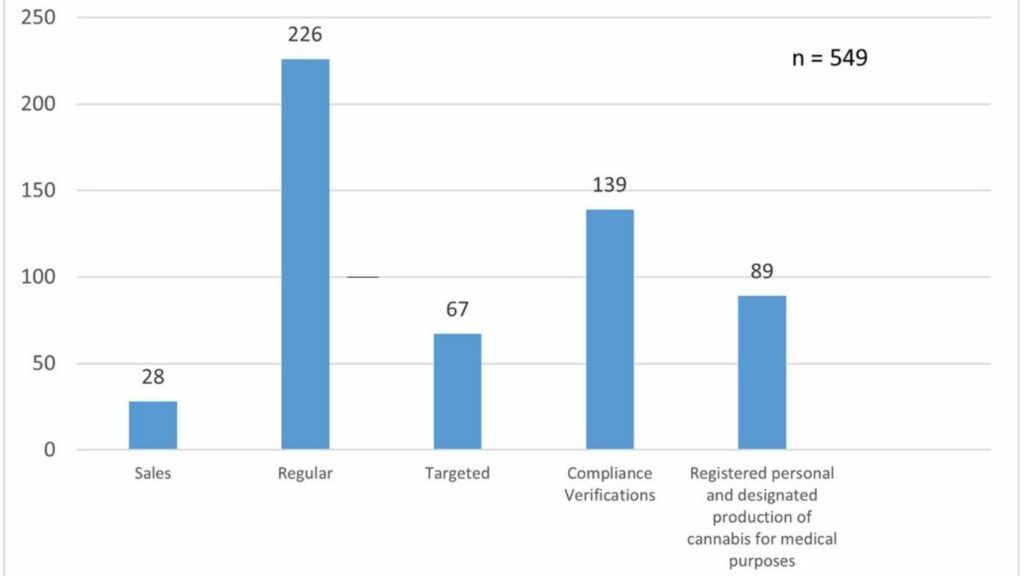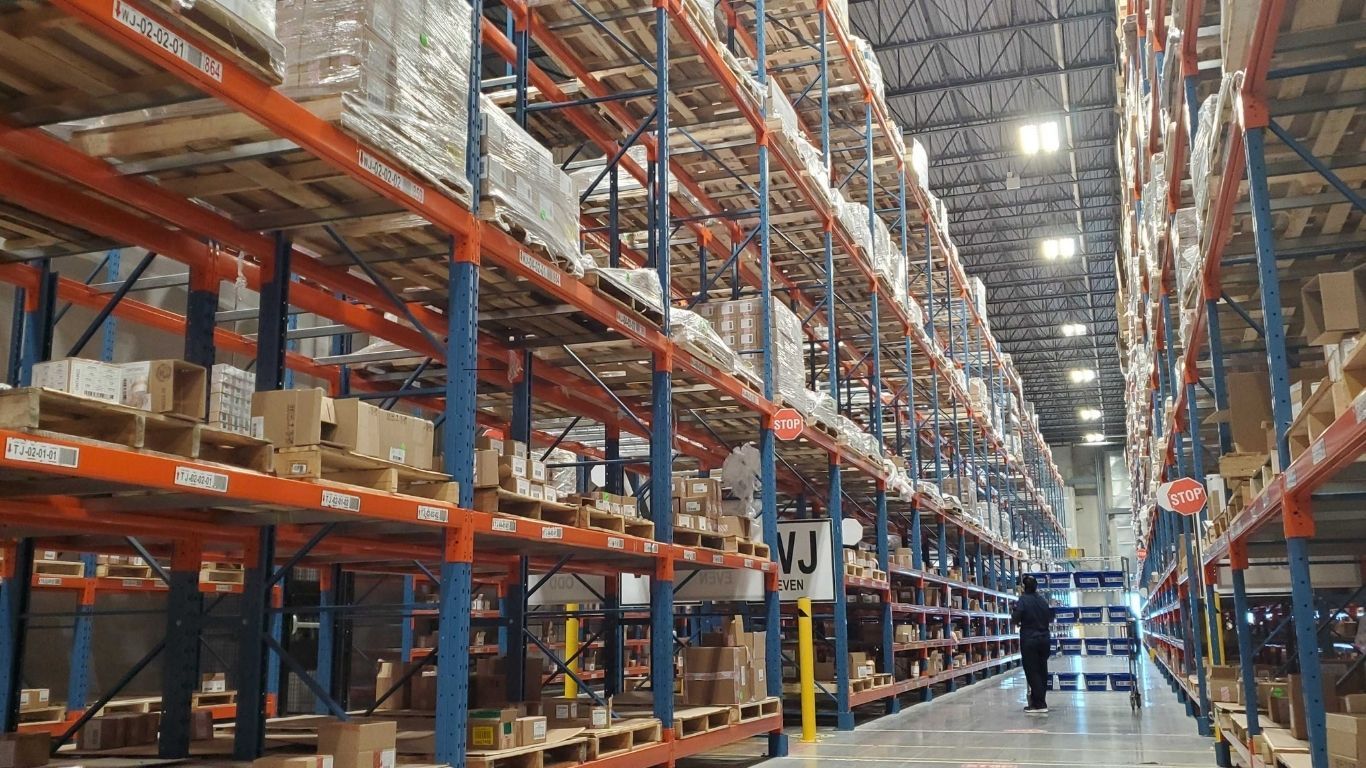
Health Canada has released their newest compliance and enforcement report covering April 1, 2021 to March 31, 2022.
The annual report represents the agency resuming in-person inspections, which mainly had been paused due to the coronavirus, and covered 549 inspection activities, including 89 inspections of registered grows for personal and designated production of cannabis for medical purposes. (Health Canada moved to a virtual inspection model during the height of COVID-19).
Just under half of the inspections conducted were routine, 67 were targeted, 139 included compliance verifications, and 28 involved sales.
A sales inspection relates to a licence holder that intends to sell a cannabis product that they are not currently authorized to sell.
During this time, Health Canada’s Cannabis Inspection Program issued three warning letters advising licence holders of their non-compliances and requesting corrective measures.

These inspections resulted in 332 compliance verification activities related to promotions, leading to 158 enforcement actions, including one warning letter*, 51 compliance-related emails or letters, and 106 compliance promotion emails or calls. *(Note: Health Canada’s report states at one point that three warning letters were issued, and at another point that one was issued. A request for clarification has been sent.)
Most issues relating to observations were listed merely as “Corrective actions required,” but some included reference to issues such as unauthorized activities with cannabis, good production practices and insufficient record-keeping non-compliance, physical security non-compliances, mandated destruction of product insufficient record-keeping, or the absence of key security cleared personnel.
Just under half (44) of these inspections resulted in no observations, while 45 inspections resulted in 1 to 4 observations for a total of 90 observations. Health Canada’s corrective actions take a graduated approach, from warning letters to registration revocation or refusal. Health Canada revoked or refused 16 of these registrations following inspections.
Seven inspections resulted in seven critical observations, which refer to issues “likely to result in risk to public health or public safety, or that involve fraud, including a clear risk of cannabis or cannabis product being diverted to or inverted from an illicit market or activity.” These represent the most serious deviation or deficiency from Health Canada’s Cannabis Act or its regulations.
Another 160 inspections resulted in a major observation, which also includes situations that may result in a risk to public health or public safety or may involve fraud, including the potential risk of cannabis or cannabis product being diverted to or inverted from an illicit market or activity. A major observation relates to serious deviations from federal cannabis legislation.
The majority (339) were for minor observations, which do not represent a risk to public health or safety.
The compliance and enforcement report for 2020-2021 included 210 inspections and 417 for 2019-2020.
Personal and designated production for medical purposes
Of the 89 inspections of personal or designated registrations, 17 were in BC, 17 were in Manitoba, 13 were in Ontario, 31 were in Quebec, and 11 were in Nova Scotia.
Health Canada has been increasing its inspections of personal and designated production licences for medical purposes. Because these require an in-person inspection, none were conducted during the 2020-2021 reporting period.
Between April 1, 2019, and March 31, 2020, Health Canada conducted 82 inspections associated with 82 personal or designated registrations. In 2019, only nine inspections were associated with such registrations.
Personal and medical authorization sites have been under increased scrutiny from several municipalities, and many Conservative MPs, especially in Ontario where OPP says criminal enterprises are exploiting the Health Canada medical, personal and designate cannabis production regime.
A southern Ontario county says they are the first in Canada to take steps to manage personal and designated medical grow licences through local zoning bylaws.
The number of individuals registered with Health Canada for personal and designated cultivation of cannabis for medical purposes decreased by 39% from 35,754 in March 2022 to 21,673 in September 2022.
The majority of this decrease (14,081) in registrations for personal/designated production was found in three Provinces: Ontario with a decrease of 4,717 registrations, British Columbia with 3,551 and Quebec with 3,226. The full report, as well as past annual reports, is available here.












